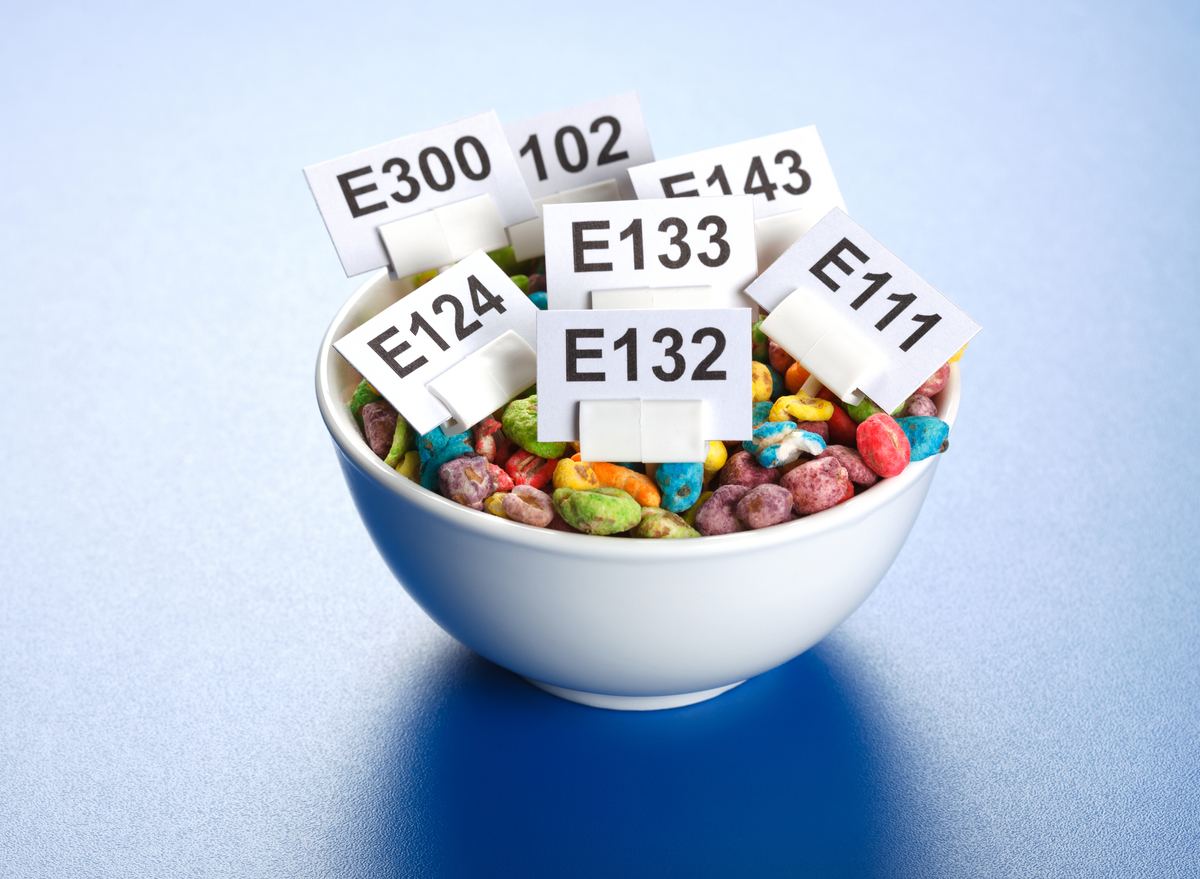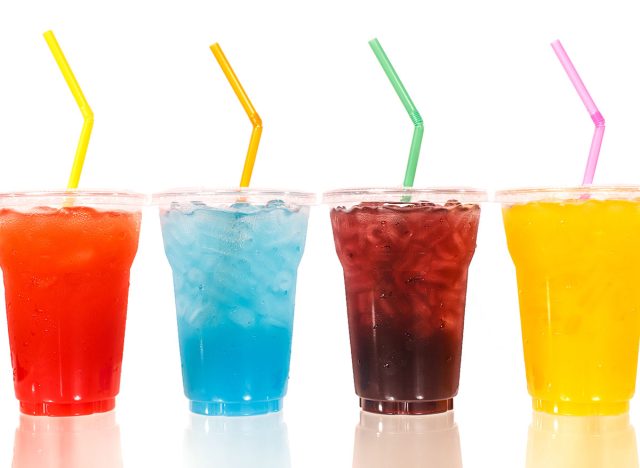Food Dyes May Have a Connection to This Serious Disease, Expert Says

Whether you know it or not, artificial food dyes are used to make everything from canned fruit to popular beverages look better in an attempt to tease your appetite and spark a certain craving. However, they may also be connected to a serious disease.
"While manufacturers have developed hundreds of synthetic food dyes over the past century, the majority of them are toxic," Lorne J. Hofseth, the director of the Center for Colon Cancer Research at the University of South Carolina, wrote for The Conversation. Despite the fact that "none of the FDA-approved synthetic food colors are classified as carcinogens, currently available research points to potential health risks I and others find concerning."
Noting possible concerns, Hofseth explained that "the bacteria in your gut can break down synthetic dyes into molecules that are known to cause cancer." Beyond that, "studies have shown that artificial food dyes can bind to the DNA and proteins inside cells."
For instance, Hofseth points to research on rodents that found synthetic food dyes caused damage to their DNA.

Related: Sign up for our newsletter for the newest food and health news!
Hofseth's own research team even found during lab testing that Red 40 and Yellow 5, specifically, can cause DNA damage in colon cancer cells. He noted in his article for The Conversation, however, that more research needs to be done in order to fully determine if there's a connection between artificial dyes and colorectal cancer.
Dr. Rashmi Byakodi, a health and wellness writer and the editor of Best for Nutrition, is echoing Hofseth's concerns. "A recent research study has revealed that artificial food dyes are one of the reasons for the increasing number of early-onset colorectal cancer," Byakodi tells Eat This, Not That!
As far as what you can do to avoid these artificial food dyes, Take comfort in the fact that some food manufacturers are actively steering clear of the fake stuff in favor of more natural ingredients.
"Many food companies are aware of the dangers of artificial food dyes and they will label their foods as 'colored with plant sources' to indicate that they get their food coloring from fruits and vegetables and not artificial food colorings," says Heather Hanks, MS CAM, a nutritionist and medical advisor for Medical Solutions BCN. This, of course, is a "refreshing" step in the right direction, she says, but more can still be done.
If you want to avoid potentially harmful artificial dyes, be sure to read 17 Surprising Foods That Contain Chemicals & Food Dyes.








